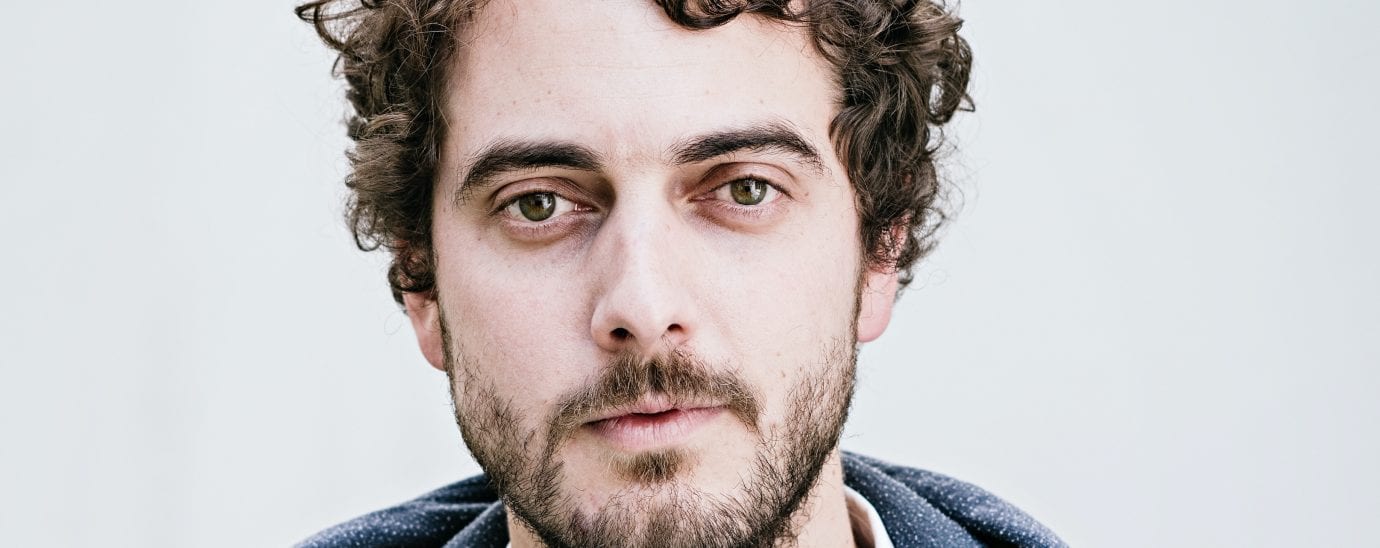Founder Feature: Boris Paillard, CEO of Le Wagon

In our latest Founder Feature, we’re talking with Boris Paillard, CEO of Le Wagon, a Paris-based company running immersive coding bootcamps, teaching people the skills they need for a career in tech.
Could you tell us about your company and what you’re striving to achieve?
Le Wagon is an international coding school specialised in immersive bootcamps. Our mission is to change people’s lives through tech education, by teaching our students the skills they need to thrive in their career or launch their own start-up. We offer web development and data science bootcamps in 40 cities in all continents.
Since 2013, we’ve trained over 10,000 graduates from all walks of life and our latest jobs report indicates that 94% or our 2019 graduates have found a job after completing a Le Wagon bootcamp. Lots of our alumni are also entrepreneurs: Le Wagon boasts over 130 alumni start-ups which have raised $120M+ globally.
Our teams work very hard on providing a life-changing experience to our students across our 40 campuses. They are supported by a community of over 2,000 freelance teachers and through an in-house education platform, developed by our engineering team.
What made you decide to take on the challenge of founding your business?
After three years in banking, I decided to change career and get into tech to launch my own start-up. As a first step, I started to learn programming and web development on my own, while still working at HSBC. Throughout this process I realised the gap between what I was learning and the tech education I received during my Master’s degree.
As someone who is passionate about teaching and helping people to understand advanced concepts, I decided to create a product-driven coding bootcamp for people like myself who wanted to quickly start a career in tech or launch their start-up with enough skills to build a first version of their product by themselves.
In 2013, I decided to quit my job in banking and launch Le Wagon.
What is the core technology driving your start-up’s product/service?
As an in-person education company, we are often seen as “non-tech”, since a lot of our added value comes from our teachers and curriculums.
That being said, over the last seven years we have been developing our own tech platform, called Kitt, with a team of 30 engineers. This platform makes the bootcamp experience very smooth for our students, teachers and staff. It has allowed Le Wagon to scale rapidly in 40 cities, which is quite unique in the bootcamp space. With COVID-19, our education platform is a key asset since it creates a fully-integrated and enjoyable experience for our students who are working from home. It kills all frictions in the learning process, which otherwise could be quite frustrating in a remote learning environment.
Tell us about some of the biggest obstacles you’ve had to overcome?
Scaling an in-person school can seem quite daunting. There’s a lot of logistics involved, including dealing with admissions and planning, staffing teachers, managing students and ensuring the best experience from both academic and community standpoints and operating large campuses. We have scaled Le Wagon in 40 cities without any funding for the first seven years (we only raised money in 2020). It has forced us to be resourceful, build adapted tools to optimise low added-value tasks and create a vibrant international community of freelance teachers to support our growth.
Every student we train requires a lot of hard work from our teams, who are all passionate about our mission. Education is a mission-driven industry and we are looking for long-term impact. We are running a marathon, not a sprint, which I believe is the biggest obstacle for any education company!
What’s most exciting about your traction to date?
An in-person school is not a software-as-a-service (SaaS) business, but yet we have achieved +100% to +200% yearly growth for the first five years and are still planning to grow by 50% in 2021 despite COVID-19.
We started with a small class of 16 students in Paris in 2014, where I was teaching with my co-founder Sébastien. Seven years later, in 2021, we are aiming to transform 5,000 students’ lives across the world. Most importantly, we have never made any compromise on quality, always keeping our Net Promoter Score (NPS) very high from the first cohort in Paris until now. That’s what makes us really proud.
Read more: Data science skills: what’s driving the surge in demand?
How are you measuring your success? What are your metrics?
Since the creation of Le Wagon in 2014, we have been obsessed with creating a life-changing experience for our students. Our NPS is one of our key metrics, and is measured for each cohort after graduation. Our standard is a NPS of 80 for every single cohort we run, which is very high in our industry.
Of course, many students join our bootcamps to find a job in tech, so our job placement rate (measured twice a year) is another other key metric in addition to NPS.
Within four years, we want to change 10,000 students’ lives every year. Therefore, our number of enrolments (i.e. students) is an important metric for us.
Thanks to our tech platform Kitt, we monitor lots of real-time learning analytics (student attempts and progress on their coding challenges, flashcards and quizzes completion, lecture attendance, number of questions raised by students). This allows our teaching teams to be proactive and use this data to help students who struggle the most. A bootcamp is very intensive and fast-paced. We deliver a lot of information every day to our students and it’s important to make sure that no one is left behind.
What are your biggest threats?
So much is going on in our industry right now!
The tech education and training space is very competitive but still very fragmented. There are dozens of local schools and tech training companies in every market where we operate but very few that have scaled globally, apart from General Assembly and Le Wagon.
I do not see massive open online courses (MOOC) or mentor-led online courses as a threat since they have lower completion rates compared to immersive bootcamps with live-teaching like ours. I think they are an interesting alternative but this type of learning with motivated classmates and great teachers is still the most efficient way to make rapid progress.
Some big tech companies are launching their own bootcamps or coding academies, but on more specialised topics. A lot of them are also outsourcing to bootcamp companies like Le Wagon, which are focused on building and maintaining world-class tech curriculums.
We also see new models emerging to challenge traditional higher education, like Multiverse (previously Whitehat), which partners with coding bootcamps to build alternative career paths for undergrads around apprenticeship. Finally, “no code” tools like Bubble are becoming more mature. They are a good option for entrepreneurs who want to quickly test an idea, or for companies with a need to quickly develop internal apps. However, I still believe successful companies and products need real developers and data experts, and that such tools are still limited in their uses.
What keeps you up at night/what are you paranoid about?
During the first years of building Le Wagon, I was getting disheartened over small details, for example, when our content was copied or when we noticed fake reviews on our courses. At some point, I just accepted that such things happen in our industry and it stopped bothering me. Now, I am mostly obsessed with strategic questions, unsolved problems or unclear action plans: is corporate tech training scalable and is it worth building a teaching software for it? How can we develop a corporate offer integrated with our existing operations? How do we succeed in adapting our model to China?
More than money and time, I’m concerned by the effort our teams will put on these projects and the reward they will get if we are successful because we made the right strategic choices.
Do you see yourself as an underdog?
Le Wagon is one of the biggest global bootcamps. Still, the bootcamp market is very US-focused, although there are no US global players apart from General Assembly which has been acquired by Adecco. In this sense, we sometimes considered ourselves as an underdog in the past — we were self-financed for the first seven years, developing our company with a mix of franchises and proprietary campuses while General Assembly was raising millions and Flatiron School was acquired by WeWork pouring money into it.
How many hours of sleep do you get and what is your morning/evening routine?
I sleep about nine hours per night. I try to avoid calls or meetings in the morning to focus on strategic projects, although it’s quite challenging with global teams operating in different time zones. My agenda is my coach, I use it extensively both for professional and personal events, which helps me (forces me ?) to find the right balance. I also use Notion extensively for organising my own work and collaborating with my teams.
How do you manage the duality between driving new business and overseeing daily operations?
We have amazing teams in every city where we run our bootcamps. Our local managers and staff really care about our students and I can totally trust them and rely on them. Still, all cities need assistance and we have progressively built a global team to help them on various topics. We have also recently hired our new COO who will start in April. This will be key to provide even more support to our local teams and it will personally give me more time to focus on developing new business.
What are your goals over the next 1, 3, 6 and 12 months?
In 2021, we are aiming to train 5,000 students and help them change career, and scale our data science bootcamps in our 40 cities. We want to reach a 95% job placement for our graduates and reach a 40% women ratio for our students. Right now, we have 50% of staff who are female and 30% of female alumni, and we are actively working on reaching parity for our students.
Follow Boris Paillard on Twitter, and learn more about Le Wagon at lewagon.com
